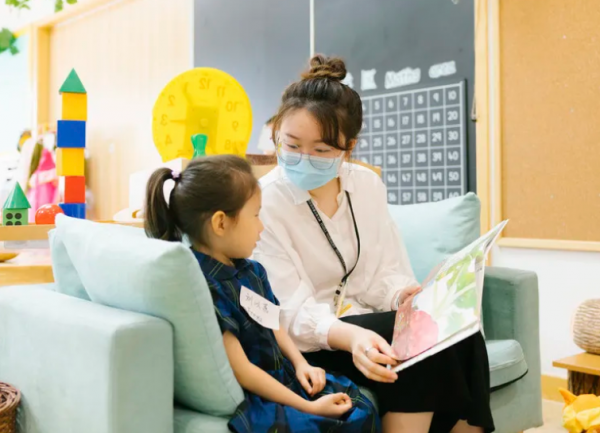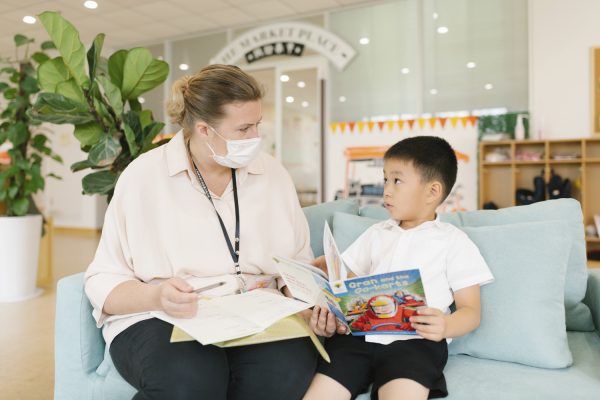
Reading at an early age has a profound impact on a child’s language development. Developing a habit of reading early on will improve their communication and expression capabilities and their cognitive skills as well. Below are some useful tips for getting your child excited about reading.
When you read with your child, your tone, gestures and facial expressions can leave a deep and lasting impression on them. To this end, try becoming the characters in the book by using different voices when they speak. If you are reading a thriller, pretend to be scared and ask your child to hold onto you. If the plot is light and humorous, laugh with your child. If the characters face a problem, frown, sigh or shake your head in empathy.

Your enthusiasm will make the reading experience more engaging for your child, leaving a deeper, longer lasting impression.
Reading to your child is more than just dictating the words you see on the page. We encourage parents and children to interact with the text and with each other while reading. Asking questions will encourage your child to explore the book more deeply and think critically about it. It can be a truly delightful experience.

Take the Little Red Riding Hood for example. You can ask your child to observe and identify various details of the book, from the cover to the contents. Here are some examples: The little girl wears a red riding hood and carries a basket in her hand. Her other hand appears to be protecting her basket. Consider asking, “What could be in it?”, “How old do you think she is?” or “Where is she?” Your child may tell you, ”In the forest.” You can continue to ask them: “Do you think she feels afraid to be alone in the forest?”, “Who do you think she will meet?” “What would you do if you came across a villain?” Try to make connections between your child's life experiences and the people, events, and items within the story. Exercises like this, will help your child develop their memory and enhance story comprehension.
Children often ask to be read the same book over and over again, leading parents to worry that their child has a narrow interest in reading. However, this is simply because children feel safe with familiar stories. They like knowing what exactly will happen next.

If you feel like you and your child are stuck in a rut with the same book, try reversing roles. Ask them to tell you a story instead. You can also create different plots together based on the original storyline. Change the ending or add in an extra character and see what happens. This not only enables your child to experience telling a story on their own, it also helps them to develop their capacity for imagination and expression. There are many ways to read with your child: drawing a story picture, role playing at home, recording as you read and many other activities that can make the experience more stimulating and engaging. Most importantly, reading together is a way to spend some quality time with your child, and this experience is truly priceless. We encourage our parents to take an active role in their child’s development by introducing them to the wonderful world of books.

Remember, if they see you enjoying a book, they are much more likely to become avid readers, as they consider their parents to be the greatest role models in their young lives.